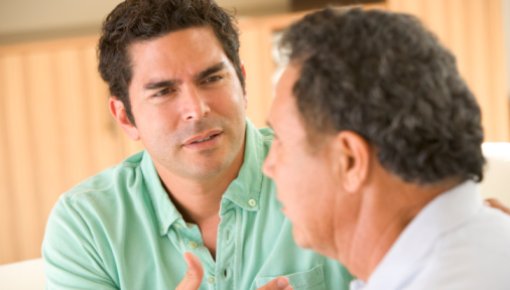Deciding against surgery
The doctors all agreed that we should try conservative treatment first. So that’s what we did. We also discussed the option of surgery. I looked into that and found out that surgery doesn’t always help. The doctors left the decision up to me. I decided to try a more conservative approach first. I saw surgery as a last resort, if the pain didn’t get any better with physiotherapy and time.
I took painkillers and didn’t go to work for a few weeks. I had physiotherapy, which mainly involved exercises, strength training and balance training. And I did various things at home too. For instance, I put my legs up, roughly at right angles, with the help of a large cube. The pain gradually went away and I was able to go back to work. I had been on sick leave for about eight weeks.
I saw my ability to climb stairs as a measure of how bad the problem was. If I didn’t have enough strength in my foot, I used to pull that leg up the steps. At first I couldn’t lift that leg up onto the next step at all, I just didn’t have enough strength. But nowadays I can. It was hard to accept, though: no longer being able to do something that I used to do without thinking about it.


